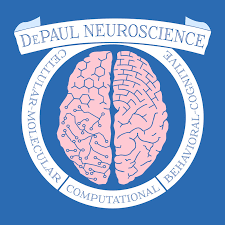- Education Topics
- Achievement Gap
- Alternative Education
- American Education Awards
- Assessment & Evaluation
- Education during COVID-19
- Education Economics
- Education Environment
- Education in the United States during COVID-19
- Education Issues
- Education Policy
- Education Psychology
- Education Scandals and Controversies
- Education Reform
- Education Theory
- Education Worldwide
- Educational Leadership
- Educational Philosophy
- Educational Research
- Educational Technology
- Federal Education Legislation
- Higher Education Worldwide
- Homeless Education
- Homeschooling in the United States
- Migrant Education
- Neglected/Deliquent Students
- Pedagogy
- Sociology of Education
- Special Needs
- National Directories
- After School Programs
- Alternative Schools
- The Arts
- At-Risk Students
- Camps
- Camp Services
- Colleges & Universities
- Counties
- Driving Schools
- Educational Businesses
- Financial Aid
- Higher Education
- International Programs
- Jewish Community Centers
- K-12 Schools
- Language Studies
- Libraries
- Organizations
- Preschools
- Professional Development
- Prom Services
- School Assemblies
- School Districts
- School Field Trips
- School Health
- School Supplies
- School Travel
- School Vendors
- Schools Worldwide
- Special Education
- Special Needs
- Study Abroad
- Teaching Abroad
- Volunteer Programs
- Youth Sports
- For Schools
- Academic Standards
- Assembly Programs
- Blue Ribbon Schools Program
- Educational Accreditation
- Educational Television Channels
- Education in the United States
- History of Education in the United States
- Reading Education in the U.S.
- School Grades
- School Meal Programs
- School Types
- School Uniforms
- Special Education in the United States
- Systems of Formal Education
- U.S. Education Legislation
- For Teachers
- Academic Dishonesty
- Childcare State Licensing Requirements
- Classroom Management
- Education Subjects
- Educational Practices
- Interdisciplinary Teaching
- Job and Interview Tips
- Lesson Plans | Grades
- Professional Development
- State Curriculum Standards
- Substitute Teaching
- Teacher Salary
- Teacher Training Programs
- Teaching Methods
- Training and Certification
- For Students
- Academic Competitions
- Admissions Testing
- At-Risk Students
- Career Planning
- College Admissions
- Drivers License
- Educational Programs
- Educational Television
- High School Dropouts
- Higher Education
- School Health
- Senior Proms
- Sex Education
- Standardized Testing
- Student Financial Aid
- Student Television Stations
- Summer Learning Loss
DePaul University

Basic Information
Address: 2325 N. Clifton
Suite 125
Chicago, IL 60614
Phone Number: 773-325-8223
Email: neuroscience@depaul.edu
Chair: Dorothy Kozlowski Ph.D.
Dean: Stephanie Dance-Barnes Ph.D.
Additional Information
Classroom Size: 30
Housing Availability:
On and Off campus
Type of Housing: https://www.depaul.edu/student-life/Pages/housing.aspx
Diversity:
We are proud to say that our neuroscience majors are a very diverse group. As of summer of 2024: White = 40%; Asian 22%; Hispanic/Latino 19%; Black/African American 10%: Foreign 3%; Native American 1%.
Disability Services:
https://offices.depaul.edu/student-affairs/about/departments/Pages/csd.aspx
Admission Requirements:
Application/Transfer Deadlines:
Mission Statement:
The College of Science and Health at DePaul University provides high quality, personalized, and accessible science and health education to a diverse student body, grounded in the values of St. Vincent de Paul. Our teaching and research advance knowledge in service to society.
Social Media Networks:
Instagram - @depaulneuro
LinkedIn -DePaul Neural Network
Program History:
Started in 2016, we are now the fourth largest major in the college of science and health.
Program Information:
https://csh.depaul.edu/academics/neuroscience/Pages/default.aspx




